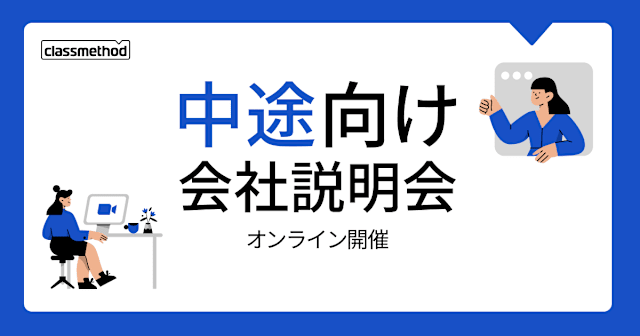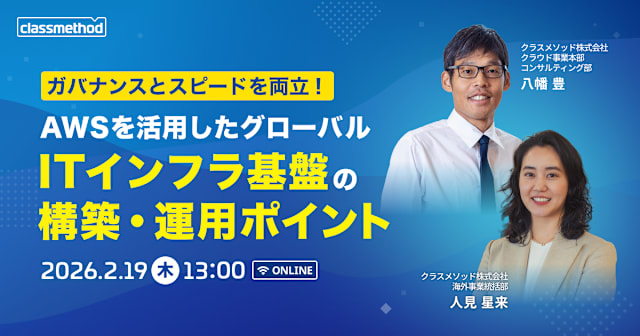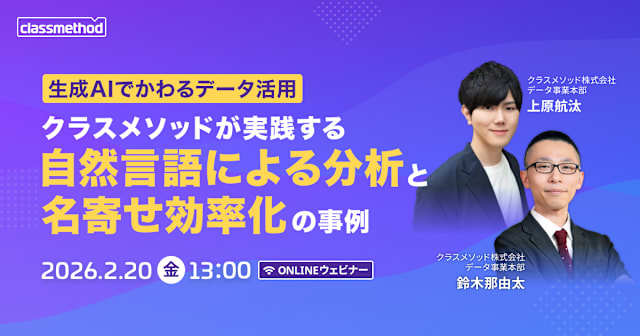
クラスメソッド・ヨーロッパは、首都圏若者サポートネットワークに寄付します。
この記事は公開されてから1年以上経過しています。情報が古い可能性がありますので、ご注意ください。
クラスメソッド・ヨーロッパには、社員が任意の個人や組織の活動を支援することのできる、ソーシャルコントリビューションプログラムがあります。本年度では、Ana をはじめとする複数社員が、ウクライナの学校へ 2500 EUR (約35万円相当)を寄付しました。
今年私からは、養護施設や里親などの下で育った若者をサポートする、首都圏若者サポートネットワークへ寄付します。
首都圏若者サポートネットワークとは
「社会的養護」と呼ばれる公的な支援のもとで育つ子どもたちは、18歳前後でその環境から出て自立することが求められます。
そんな若者たちを支援する様々な団体と協力して支援金を集めて橋渡しとなっているのが、首都圏若者サポートネットワークです。
児童養護施設や里親家庭など、なんらかの事情があって公的な支援のもとで育った子ども・若者たちが、社会のなかでみずからの力を発揮して生きていくことを応援する民間のネットワークです。
子ども時代につらい経験をした若者たち、そして彼らに寄り添って伴走型の支援をおこなう伴走者たちを、市民や民間団体の力を集めてサポートしていきます。
(ウェブサイトより抜粋)
なぜ彼らに支援が必要なのか
18歳というと新成人ですが、普通はまだまだ一人では暮らしていけませんよね。
私も高校卒業後に実家を出て一人暮らしを始めましたが、到底すぐに自立したとは言えません。
初めは洗濯機の使い方など些細なことでも親に電話して聞いていたことを覚えています。離れたところでも親に支えられているという安心感の中で、金銭的にも心理的にも支援されながら少しずつ自立していったのだと思います。
現在、日本で社会的養護を受ける子どもたちは約42,000人で、子どもの500人に1人です。(*ウェブサイトより、2022年10月時点)彼らのほとんどは、そうやって頼れる親や親戚がいません。
貧困や虐待、病気や事故による両親との死別など背景は様々ですが、特に虐待のような幼い頃のつらい経験により、彼らが生きる上でなんらかの困難を抱えるケースは少なくないようです。
このように既存の仕組みでは支援しきれない若者たちのために、首都圏若者サポートネットワークは一対一の継続的な支援を提供しています。
事業内容
具体的な支援内容は様々で、例えば以下のような内容が挙げられます。
- 生活や就職の相談
- 生活物資の送付
- 学習支援
- 一時住居の提供
- 養護施設卒業者のネットワーク作り
ですが、これらを首都圏若者サポートネットワークが直接行うのではなく、各支援団体へ助成金を給付することで、当事者への伴走型支援(一対一の継続的な支援)を提供してもらいます。
以下、ウェブサイトからのイメージと説明文を引用します。

困難を抱えた当事者の子ども・若者に対して、一対一で継続的な支援(=伴走型支援)をおこなう「伴走者」をはじめ、子ども・若者の支援に携わるさまざまな団体・個人、協同組合、学識者などが連携をとり、①基金造成 ②助成金給付 ③就労・キャリア支援 ④調査研究・政策提言の4つの事業をとおして、子ども時代につらい経験をした子ども・若者たちをサポートしていきます。
具体的な支援例
より具体的に、こちらから引用した一つの例をご紹介します。
〜独立の準備ができていないにも関わらず自立援助ホームを出なくてはいけない20歳への伴走支援〜
背景
幼少期より親から虐待を受け、心身共に深い傷を負っていたAさん。親もとから逃れて若者おうえん基金の助成先となった自立援助ホームに入居できたものの、制度上20歳の誕生日にはホームを退居しなくてはならないため、ホームで支援を受けられる期間は半年ほどしかありません。しかし、一般社会で就労を継続するための生活能力がまだ十分に備わっておらず、また約半年間という短い期間では自立のための貯蓄をすることも難しい状況でした。
助成した支援内容
退所後も継続した支援をおこなうために、自立援助ホームの近くにあるアパート物件を借り、物件初期費用、伴走支援にかかる人件費、交通費、食費などを若者おうえん基金の助成金でサポートしました。また、アパート暮らしへの移行は過程にすぎません。必要に応じて随時、行政手続き同行、生活支援、通院同行などもおこないました。将来、自立することをふまえて、ホームの職員に過度に依存せず自分でできることは自分で頑張れるよう、今後も伴走支援を進めていく予定です。
さいごに
私がこの団体を知ったきっかけは、知人がこの事務局員だったことで、これまで個人的にも寄付したことがありました。ですが、昨年子どもが産まれて自分が親になったことで、子どもや若者についてより敏感になり、このような状況の若者たちを支援したいという気持ちが強まりました。
このブログを通して、皆さんに少しでも理解や認知が広がれば嬉しいです。
また新型コロナにより、さらに生活が苦しくなり、サポートを必要としている若者たちがたくさんいます。
現在 Readyfor でクラウドファンディングが行われていますので、これを読んで関心を持った方はぜひ少額でも支援いただけると幸いです。
養護施設や里親などの下で育った若者をサポートする!若者おうえん基金(若者おうえん基金 2022/08/29 公開) - クラウドファンディング READYFOR
We, Classmethod Europe has an employee benefit, called Social Contribution Program, which allows employees to support the activities of any individual or organization. This year, Ana and several other employees donated 2,500 EUR to a school in Ukraine.
This year I will be donating to the Wakamono Support Network (Tokyo Metropolitan Youth Supporting Network), which supports young people who grew up in foster care.
What is Wakamono Support Network?
Children who grew up with public support (social foster care), are required to leave that environment around the age of 18 and become independent.
The Wakamono Support Network collects funds and serves as a bridge between such young people and various organizations that support them.
We are a private network that supports children and youth who have grown up in foster homes, foster families, or under other public support for some reason, to demonstrate their own abilities and live in society.
We support young people who have experienced hardships in their childhood and their companions who assist them, by cooperating with citizens and private organizations. (Excerpt from website and translated)
Why do they need help?
Eighteen years old is a fresh ‘adult’, but usually you can't live on your own yet.
I too, left my parents' home after graduating from high school and started living alone, but I can’t say that I was independent already at the start.
I remember calling my parents and asking them about even trivial things in the beginning — like how to use the washing machine. I think I gradually became independent while feeling secure with knowing that my parents always supported me even with distance, both financially and psychologically.
Currently, there are approximately 42,000 children in Japan receiving social care, that means one out of every 500 children. (From their website, as of October 2022) Most of them have no parents or relatives to depend on as I did.
The backgrounds of those children are various, such as poverty, abuse, and bereavement of parents due to illness or accident. Among them, there are not a few cases in which they have some difficulties in their later lives due to painful experiences in their childhood, especially abuse.
For these young people who cannot be fully supported by existing systems, the Wakamono Support Network provides one-on-one continuous support (so called “companionship support”).
How does the org support them?
So that the "Companions" provide one-on-one continuous support to children and youth who are experiencing difficulties, we work with various cooperatives, academics, and other organizations and individuals. We will support children and youth who have experienced hardships in their childhood through the following four projects: (1) fund building, (2) grant provision, (3) employment and career support, and (4) research and policy advocacy. (Excerpt from website and translated)
The provided support services vary and these include, for example:
- Consultation on daily living or employment
- Delivery of daily commodities
- Learning support
- Providing temporary housing
- Creating a network of foster home graduates
The Wakamono Support Network does not directly provide these services, but provides grants to each support organizations so they provide companionship support - tailored and continuous support to their youth.
Example
Here is a case about a 20 year old who needed to leave an independent assistance home care even though this youth was not ready to be independent. (Excerpt from their crowdfunding page and translated)
Background
A Youth A had been abused by his parents since childhood and suffered deep physical and mental trauma. He was able to escape from his parents and moved into a home care with independence assistance, which was subsidized by the Wakamono Support Network’s fund. However, he could stay there only for about six months, since he was required to leave the home care on his 20th birthday according to the rule. The young man did not yet have sufficient life skills to continue working in the society on his own. It was also difficult for him to save money enough to live by himself within such a short period of time.
Provided Support
In order to provide continuous support after leaving the home care, we rented an apartment near the home for A and covered some necessary expenses with a grant from our fund. These included the initial cost of the apartment, personnel expenses for accompanying support, transportation expenses, and food expenses. The transition to apartment living is only a step. As needed, we also accompanied him to a hospital, assisted with administrative procedures at the authority, and provided daily living support. With the aim for his full independence in the future, we will continue to provide this “companionship support” so that this youth can do what he can do on his own without being overly dependent on the home care's staff.
Summary
I got to know this organization through my friend, who is one of the directors of this executive office and had donated personally in the past. But I’ve got more interested in this subject - supporting youth in difficulties - since I myself got a baby last year.
Those young people from difficult backgrounds are suffering even more under the Covid-19 pandemic. I hope this blog helped you learn something about this topic and have a bit more of understanding to these people.










